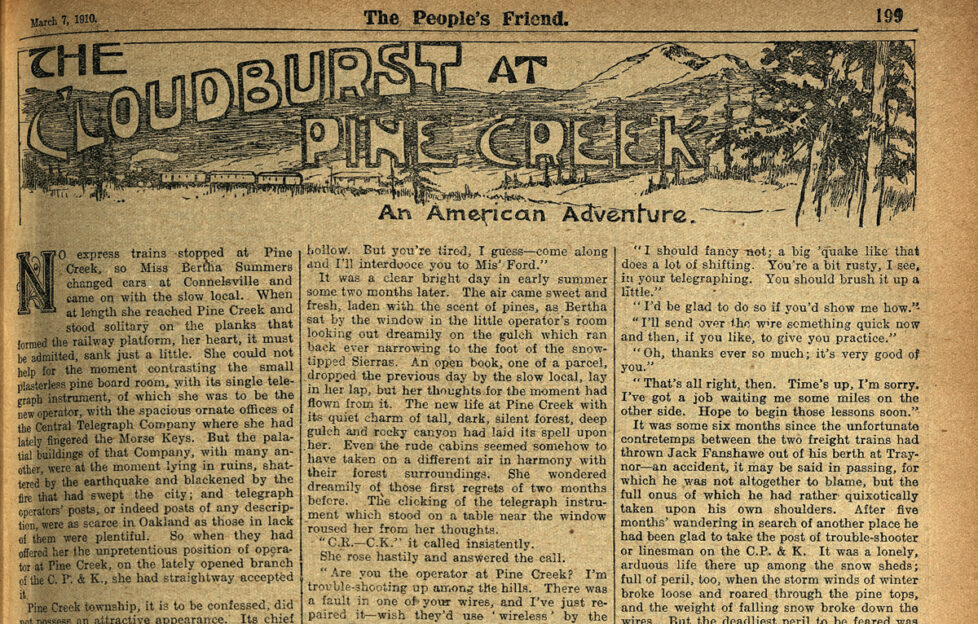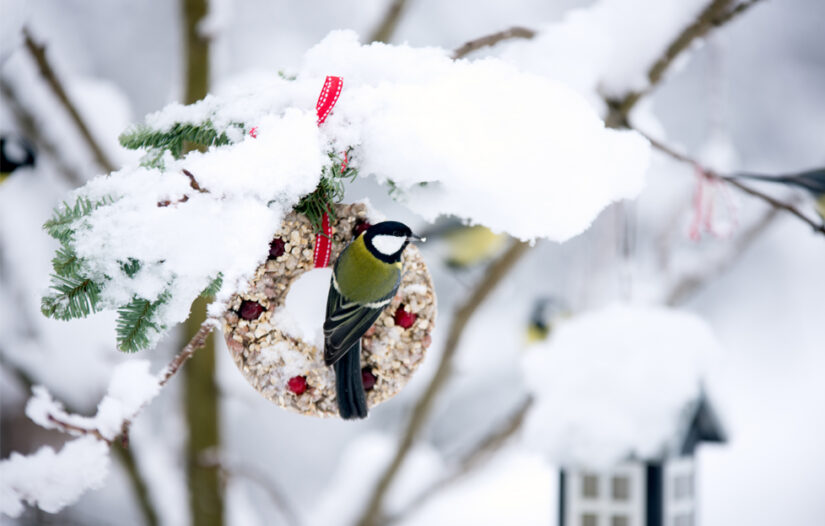
We love words at the “Friend”, as you’d expect, so it’s always a joy to discover new and interesting expressions. And we find plenty of those in our Reading Between The Lines podcast stories! As it’s National Shakespeare Day on April 23rd, we thought we’d highlight some of our favourites.
Reading Between The Lines
In general, the style of the stories at the turn of the century was a lot more wordy and self-consciously literary than we’re used to now. That was especially true of our first story, from 1871, A Night Among Robbers. Set in America, a gang of ruffians snatches an innocent gent from the streets the night before his wedding. Our dastardly desperadoes have a way with words, though:
“The least noise or disturbance will be at the cost of your life,” was the admonition I received, whispered into one ear, and emphasised by the click of a pistol at the other.
Shortly followed by:
“You are doubtless anxious to learn the cause of a proceeding which, it is but natural to suppose, has occasioned you some surprise,” continued the same voice in which the admonition had been given.
Our reader, Alex, had to pause for thought several times while grappling with this text. Listen to the snippet below!
It’s also one of the few stories I’ve come across that actually uses the phrase: “But hark!” Not once, but twice! By now we’re all wondering if this writer had his tongue very firmly in his cheek. But, I guess we’ll never know . . .
Hifalutin high jinks
Using pompous and affected language can be fun in humorous stories. It creates a difference between the words the author chooses and the comic action being described. P.G. Wodehouse did this all the time. One of his favourites “burglarious” is also one of ours and turns up in two of our stories.
These were A Marked Man in episode 11 and The Burglar in episode 6, part of our delightful MacPeever Wrangles episodes. As we found out, it was mostly used by the legal profession to describe the way a burglar went about his business. So, it could be expected from the Judge in A Marked Man. But, as a retired grocer, Mr MacP would have had less use for it!
Out and about
Some of the words we liked described methods of transport we don’t see any more. For example, the “motor-broughams” in episode 9’s The Black Sheep Of The Family: A Tale Of A Fancy Dress Ball. A story from 1911, it referred to an early type of car that owed much to the horse-drawn carriage just falling out of favour. The driver would sit outside and the passengers snug in an enclosed cabin behind.
My Connemara Ghost in episode 12 also introduces us to the “side-car”. I don’t know about you, but when I first heard this, I smiled to think of our heroine tearing around the wilds of Connaught in a capsule attached to a motorbike, like Wallace and Gromit. But no, dear reader, a side-car was apparently another word for an Irish jaunting car. This is a two-wheeled horse-drawn cart where passengers sit back-to-back with the driver on a narrow seat at the front.
There are so many more lovely wordy discoveries I could share here, but maybe I’ll save those for another day! In the meantime, we’d love to know which words or turns of phrase you’ve most enjoyed in our podcasts. Do let us know by emailing peoplesfriend@dctmedia.co.uk or messaging us on Facebook or Twitter.
Listen to our latest Reading Between The Lines podcast episode, The Cloudburst At Pine Creek.




